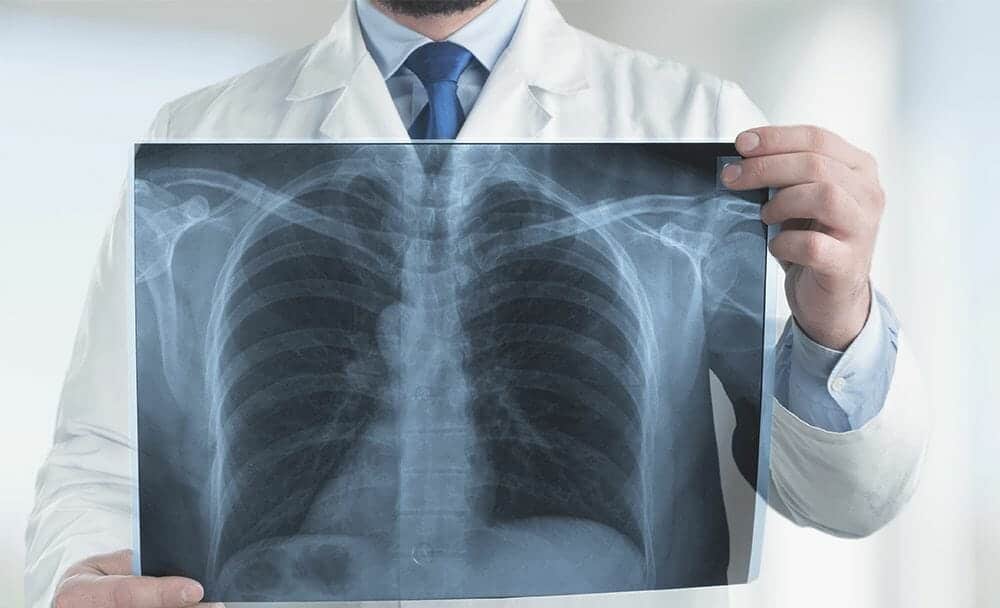Reviewed By Dr. Vipin Bihari Sharma

Cystic fibrosis autosomal recessive disease is a genetic disorder primarily affecting the respiratory, reproductive, and digestive systems. It is mainly seen among individuals of European origin and is very rare in other races. It is characterized by the absence or deficit of CFTR protein production [1], leading to a thick and sticky mucus that can damage various organs. [2]
Cystic fibrosis is a chronic condition that can significantly impact an individual’s quality of life. This article will explore the cystic fibrosis meaning, the various aspects of cystic fibrosis, including its symptoms, cystic fibrosis causes, diagnosis, and treatment options.
What is Cystic Fibrosis?
According to the Cystic fibrosis definition, it is an inherited genetic disorder triggered by a defective gene. The defective gene is called the cystic fibrosis transmembrane conductance regulator (CFTR) gene. This gene mutation affects the functioning of chloride channels, leading to the abnormal production of mucus and the accumulation of sticky mucus in various organs. [2]
Symptoms of Cystic Fibrosis:
The signs and Cystic fibrosis symptoms can vary widely from person to person, but some common manifestations include:
- Persistent cough with thick mucus
- Frequent lung infections and diseases such as pneumonia or bronchitis
- Shortness of breath and wheezing
- Nasal polyps
- Abdominal pain and diarrhea
- Heartburn with common gastrointestinal problems
- Poor digestion and absorption due to small intestine bacterial overgrowth
- Poor growth and weight gain despite a good appetite
- Frequent bowel movements or greasy, foul-smelling stools
- Difficulty in passing stools or severe constipation
- Sinus infections
- Osteoporosis, Electrolyte imbalances, and dehydration manifest in the form of an increased heart rate, fatigue, weakness, and low blood pressure [2]
Causes of Cystic Fibrosis:
Cystic fibrosis is caused by inheriting two copies of the defective CFTR gene, one from each parent. The CFTR gene provides instructions for producing a protein that can regulate the movement of salt and water in and out of cells. The mutation in the CFTR gene disrupts this process, leading to the buildup of thick mucus in various organs. [2]
Diagnosis of Cystic Fibrosis:
Cystic fibrosis diagnosis is typically through a combination of tests, including:
Sweat test:
The gold standard for diagnosing Cystic fibrosis, this test measures the amount of salt in sweat. High levels of salt indicate the presence of cystic fibrosis. [2]
Genetic testing:
Genetic testing can identify the mutations in the CFTR gene, confirming the diagnosis of cystic fibrosis. A Guthrie blood spot test is done, and positive samples are then tested for the CFRT gene mutation. [2]
Treatment of Cystic Fibrosis:
While there is no cure or remedy for Cystic fibrosis disease currently, advancements in treatment have significantly improved the prognosis for affected individuals. Treatment aims to manage symptoms, prevent complications, and improve overall quality of life. Some key treatment options include:
Medications:

Various medications, such as bronchodilators like beta-agonist and antibiotics like ciprofloxacin, cephalexin, and amoxicillin, are used to manage symptoms, reduce inflammation, and prevent infections. [2]
Enzyme replacement therapy:
Individuals with cystic fibrosis often have pancreatic insufficiency. Enzyme supplements can help improve digestion and nutrient absorption. [1]
Nutritional support:
A well-balanced, high-calorie diet is essential for individuals with cystic fibrosis to maintain a healthy weight and growth. [1]
Lung transplantation:
In severe cases, a lung transplant may be considered when lung function deteriorates significantly. [1]
FAQs
What is the best cystic fibrosis treatment in Ayurveda?
Adusa (Adhatoda vasica): Adusa, also known as Vasaka, has been traditionally used in Ayurveda to support respiratory health. It is believed to have expectorant, bronchodilatory, and anti-inflammatory properties. These properties help to reduce cough, facilitate the expulsion of mucus, and promote better breathing.
Mulethi (Glycyrrhiza glabra):
Mulethi, also known as Licorice has been traditionally used for its soothing and anti-inflammatory properties. Mulethi is believed to help reduce inflammation in the respiratory tract and may have expectorant properties, which can aid in clearing mucus from the airways. It can be used to alleviate cough and respiratory congestion.
Haldi (Curcuma longa): Haldi, commonly known as Turmeric is recognized for its amazing anti-inflammatory and antioxidant properties. Curcumin, an active compound in turmeric, is believed to have multiple benefits for your health, including reducing inflammation and boosting immune function. While it may not directly treat cystic fibrosis, these properties of turmeric may have a supportive role in managing inflammation and promoting overall health.
How is cystic fibrosis inherited?
Cystic fibrosis is a hereditary condition where individuals inherit two copies of the faulty CF gene, one from each parent. It is necessary for both parents to possess at least one copy of the defective gene for their child to develop Cystic fibrosis.
Is it true that Cystic fibrosis is autosomal recessive chromosome 7?
Cystic fibrosis is a condition characterized by pancreatic exocrine failure in children. It is an autosomal recessive health issue resulting from a mutation in the CFTR gene located on chromosome 7. This genetic mutation causes a malfunction in the cyclic-AMP-dependent chloride channel function.
Conclusion:
Cystic fibrosis is a complex genetic disorder that affects multiple organ systems, primarily the lungs and digestive system. While it is a chronic condition with no known cure, advancements in medical treatment have immensely improved the prognosis and quality of life for individuals with Cystic fibrosis. Early diagnosis through newborn screening and comprehensive management can help individuals lead fulfilling lives despite the challenges posed by this condition.
Disclaimer:
This article is written from a health and wellness perspective only and is not a piece of medical advice. Kindly seek the help of a certified medical practitioner before initiating any treatment.
References:
















